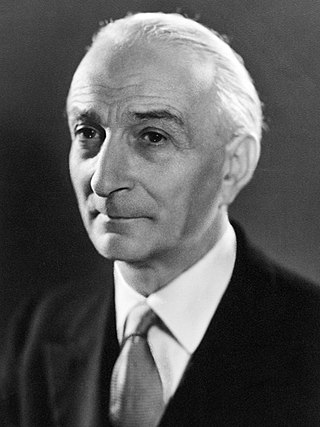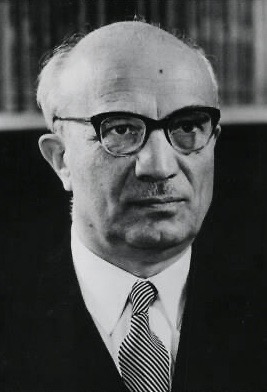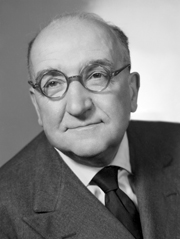Related Research Articles

Christian Democracy was a Christian democratic political party in Italy. The DC was founded on 15 December 1943 in the Italian Social Republic as the nominal successor of the Italian People's Party, which had the same symbol, a crusader shield. As a Catholic-inspired, centrist, catch-all party comprising both centre-right and centre-left political factions, the DC played a dominant role in the politics of Italy for fifty years, and had been part of the government from soon after its inception until its final demise on 16 January 1994 amid the Tangentopoli scandals. Christian Democrats led the Italian government continuously from 1946 until 1981. The party was nicknamed the "White Whale" due to its huge organisation and official colour. During its time in government, the Italian Communist Party was the largest opposition party.

The prime minister of Italy, officially the president of the Council of Ministers, is the head of government of the Italian Republic. The office of president of the Council of Ministers is established by articles 92–96 of the Constitution of Italy; the president of the Council of Ministers is appointed by the president of the Republic and must have the confidence of the Parliament to stay in office.

Antonio Segni was an Italian politician and statesman who served as the president of Italy from May 1962 to December 1964, and as the prime minister of Italy in two distinct terms between 1955 and 1960.

Mariano Rumor was an Italian politician and statesman. A member of the Christian Democracy (DC), he served as the 39th prime minister of Italy from December 1968 to August 1970 and again from July 1973 to November 1974. As prime minister, he led five different governments, supported by various coalitions.

Alcide Amedeo Francesco De Gasperi was an Italian politician and statesman who founded the Christian Democracy party and served as prime minister of Italy in eight successive coalition governments from 1945 to 1953.

Amintore Fanfani was an Italian politician and statesman, who served as 32nd prime minister of Italy for five separate terms. He was one of the best-known Italian politicians after the Second World War and a historical figure of the left-wing faction of Christian Democracy. He is also considered one of the founders of the modern Italian centre-left.

Adone Alvaro Ugo Natale Camillo Zoli was an Italian politician who served as the 35th prime minister of Italy from May 1957 to July 1958; he was the first senator to have ever held the office.

Emilio Colombo was an Italian politician. A member of the Christian Democracy party, he served as Prime Minister of Italy from August 1970 to February 1972. In 2003, he was appointed senator for life, a seat he held until his death.

Mario Scelba was an Italian politician and statesman who was the 33rd prime minister of Italy from February 1954 to July 1955. A founder of Christian Democracy (DC), Scelba was one of the longest-serving Minister of the Interior in the history of the republic, having served at the Viminale Palace in three distinct terms from 1947 to 1962.

Giuseppe Pella was an Italian Christian Democratic politician and statesman who served as the 31st prime minister of Italy from 1953 to 1954. He was also Minister of Treasury, Budget and of Foreign Affairs during the 1950s and early 1960s. Pella served as President of the European Parliament from 1954 to 1956 after the death of Alcide De Gasperi.

Luigi Sturzo was an Italian Catholic priest and prominent politician. He was known in his lifetime as a Christian socialist and is considered one of the fathers of the Christian democratic platform. He was also the founder of the Luigi Sturzo Institute in 1951. Sturzo was one of the founders of the Italian People's Party (PPI) in 1919 but was forced into exile in 1924 with the rise of Italian fascism, and later in 1943 Christian Democracy, although he was never a party member. In exile in London and later New York City, he published over 400 articles critical of fascism. Sturzo's cause for canonization opened on 23 March 2002 and he is titled as a Servant of God.
Nico Perrone is an Italian essayist, historian and journalist. He firstly discovered papers on the plot for killing Enrico Mattei, the Italian state tycoon for oil in the 1950s.

The Italian People's Party, also translated as Italian Popular Party, was a Christian-democratic political party in Italy inspired by Catholic social teaching. It was active in the 1920s, but fell apart because it was deeply split between the pro- and anti-fascist elements. Its platform called for an elective Senate, proportional representation, corporatism, agrarian reform, women's suffrage, political decentralisation, independence of the Catholic Church, and social legislation.

The History of Trentino begins in the mid-Stone Age and continues to the present day when Trentino is part of the Italian Republic.
The Trofeo Alcide De Gasperi is a one-day cycling race held annually in Italy. It was part of the UCI Europe Tour in category 1.2 from 2005 to 2015, when it was reserved for amateurs in 2016. It returned to the UCI Europe Tour in 2017.

Popular Alternative is a Christian-democratic political party in Italy that was founded on 18 March 2017 after the dissolution of New Centre-Right (NCD), one of the two parties that emerged at the break-up of The People of Freedom. "Popular" is a reference to popolarismo, the Italian variety of Christian democracy. The party has been a member of the European People's Party (EPP) since its foundation, having inherited the membership of the NCD.
All Rome residents who are at least 18 years old and hold an EU citizenship are eligible to vote for the Mayor and the 48 members of the Capitoline Assembly, as well as for the President and the 30 or 40 members of the Council of the Municipality where they reside.

Luigi Carbonari (1880–1971) was an Italian politician from Trentino who was active in the agricultural cooperative movement.
References
- ↑ Alfredo Canavero (2003). Alcide De Gasperi: cristiano, democratico, europeo [Alcide De Gasperi: Christian, democratic, European] (in Italian). Rubbettino. p. 12. ISBN 9788849807073.
- ↑ Paolo Piccoli; Armando Vadagnini (2004). Degasperi: un trentino nella storia d'Europa [Degasperi: Trentino in the European history] (in Italian). Rubbettino. p. 127. ISBN 9788849809350.
- ↑ "Alcide De Gasperi: un mediatore ispirato per la democrazia e la libertà in Europa" [Alcide De Gasperi: An inspired mediator for democracy and freedom in Europe](PDF) (in Italian).